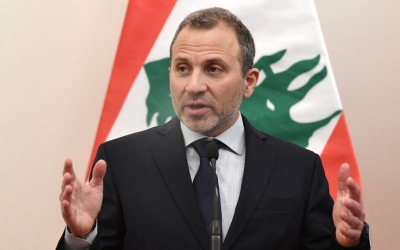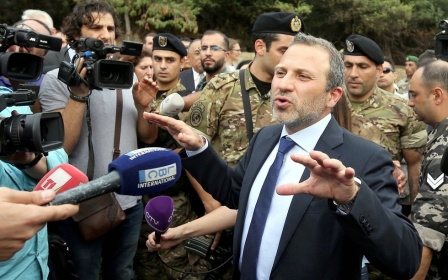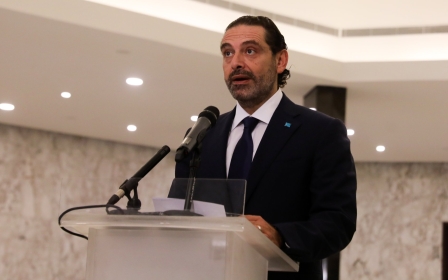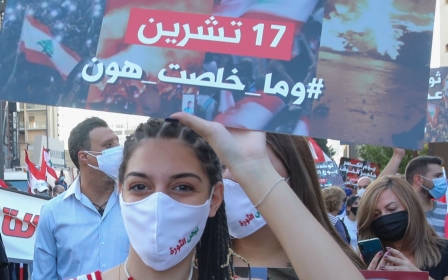Lebanon's Gebran Bassil calls US sanctions against him an 'injustice'
Former Lebanese foreign minister Gebran Bassil said on Sunday that US sanctions against him were unjust, politically motivated and the result of his refusal to break ties with Hezbollah, according to Reuters.
Washington on Friday had blacklisted Bassil, the leader of Lebanon's biggest Christian political bloc and the son-in-law of President Michel Aoun, accusing him of corruption and ties to the Hezbollah movement, which Washington classifies as a terrorist group.
A regular target of Lebanese protests against a political elite accused of pillaging the state, Bassil denied the US's accusations of corruption, and said the issue did not come up in conversations with US officials when they demanded he sever ties with Hezbollah or face sanctions.
"These sanctions are an injustice and I will fight them and sue for damages," he said in a televised speech.
Bassil, who harbours presidential ambitions, heads the Free Patriotic Movement (FPM), which was founded by Aoun, and has also served as minister of telecoms, and of energy and water.
The FPM has a political alliance with Hezbollah, which has become Lebanon's most powerful political force.
Bassil says the Iran-backed group is vital to the defence of Lebanon.
"We do not stab any Lebanese in the back for foreign interests," he said. "We will not agree to isolating any Lebanese component, even if we pay a heavy price for that."
Bassil said the sanctions against him should not hold up forming a new government to tackle a financial meltdown, Lebanon's worst crisis since its 1975-1990 civil war.
Prime Minister-designate Saad al-Hariri is currently navigating Lebanon's sectarian politics to assemble a cabinet needed to tackle endemic corruption, waste and mismanagement, and enact reforms demanded by foreign donors in order to unlock financial aid.
Middle East Eye delivers independent and unrivalled coverage and analysis of the Middle East, North Africa and beyond. To learn more about republishing this content and the associated fees, please fill out this form. More about MEE can be found here.





